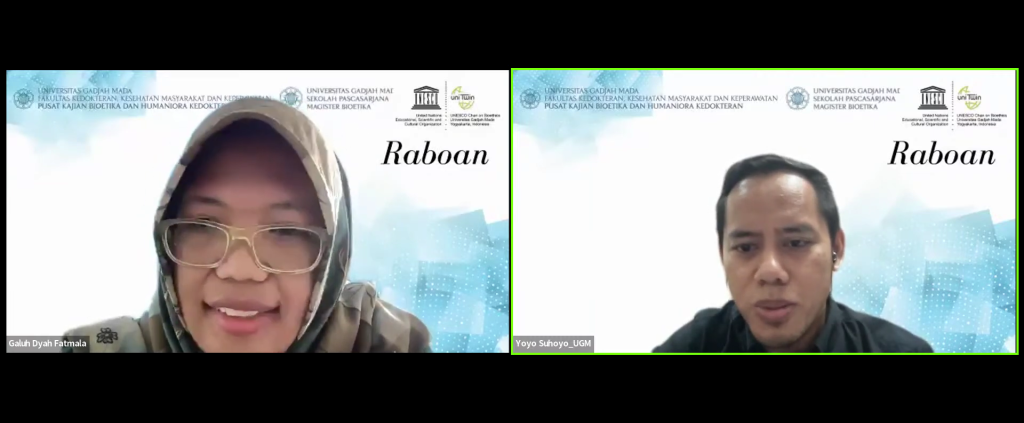Ethical Issue in Assessment [Raboan Discussion Forum]
Center for Bioethics and Medical Humanities held Raboan Discussion Forum on Wednesday (11/01). The weekly discussion forum raised topic Ethical Issue in Assesment. The topic was presented by dr. Yoyo Suhoyo, M.Med.Ed, PhD. and lead by moderator dr. Galuh Dyah Fatmala.
Ethical behavior in assessment requires individuals to act based on their obligation to protect the rights of those affected by the evaluation, treat them with respect, and incorporate principles of fairness. The first principle of assessment is to do no harm, meaning that assessments should accurately reflect mastery of content, be administered fairly, and treated confidentially to avoid score pollution. Score pollution is any practice that artificially improves test performance without increasing actual mastery of content, resulting in scores that do not represent actual student achievement.
Assessment principles include validity, which ensures that the assessment measures what it is intended to measure, reproducibility, which ensures consistency in measurement, equivalence, which ensures that different forms of the assessment measure the same construct, feasibility, which ensures that the assessment can be practically administered, educational effect, which considers the impact of assessment on learning, and catalytic effect, which considers the impact of assessment on instruction. Acceptability, which considers the stakeholders’ perceptions of the assessment, is also a crucial principle.
In summary, ethical behavior in assessment requires individuals to protect the rights of those affected by the evaluation, avoid score pollution, and incorporate principles of fairness. Assessment principles such as validity, reproducibility, equivalence, feasibility, educational effect, catalytic effect, and acceptability ensure that assessments accurately measure what they intend to measure, are administered consistently and fairly, and have a positive impact on learning and instruction.



